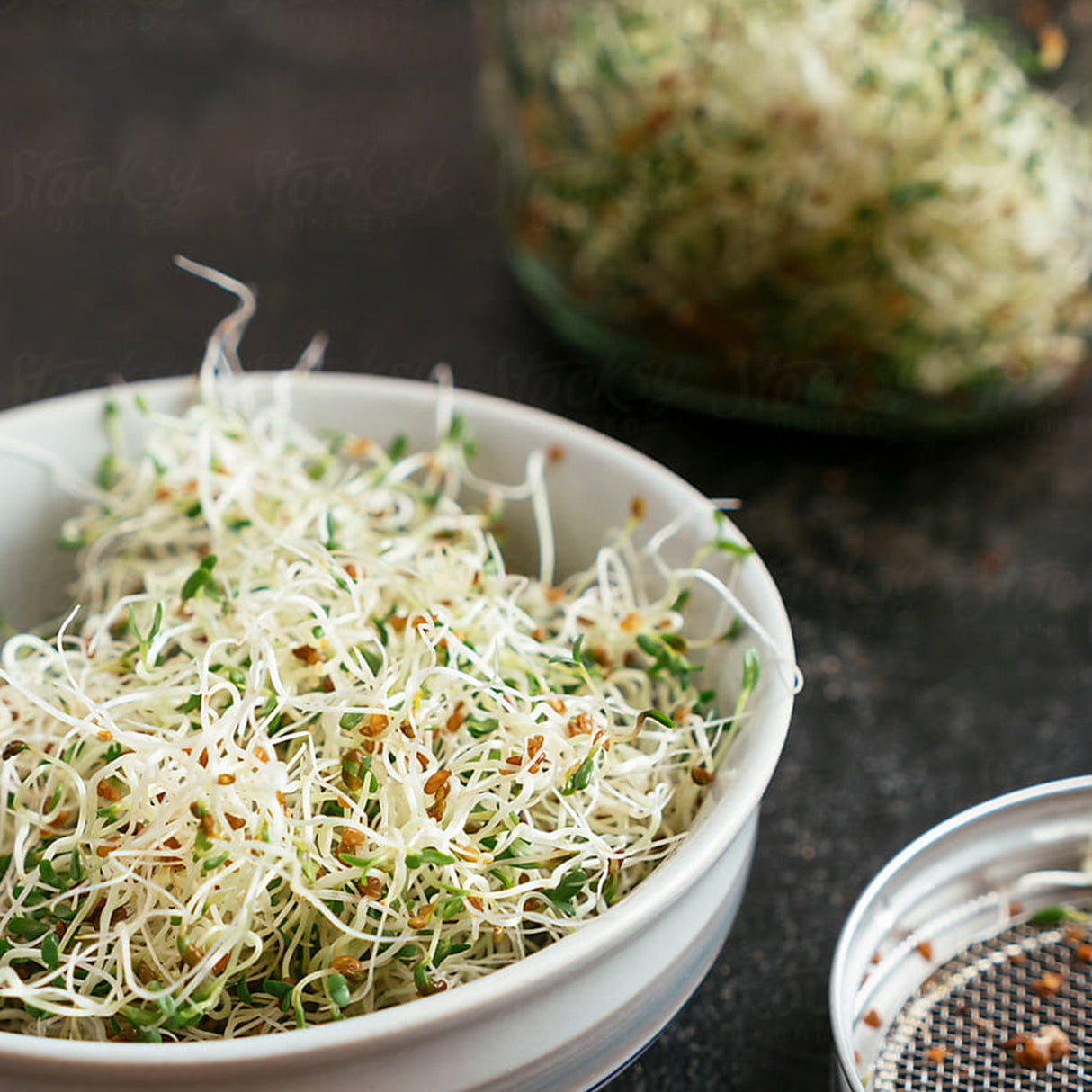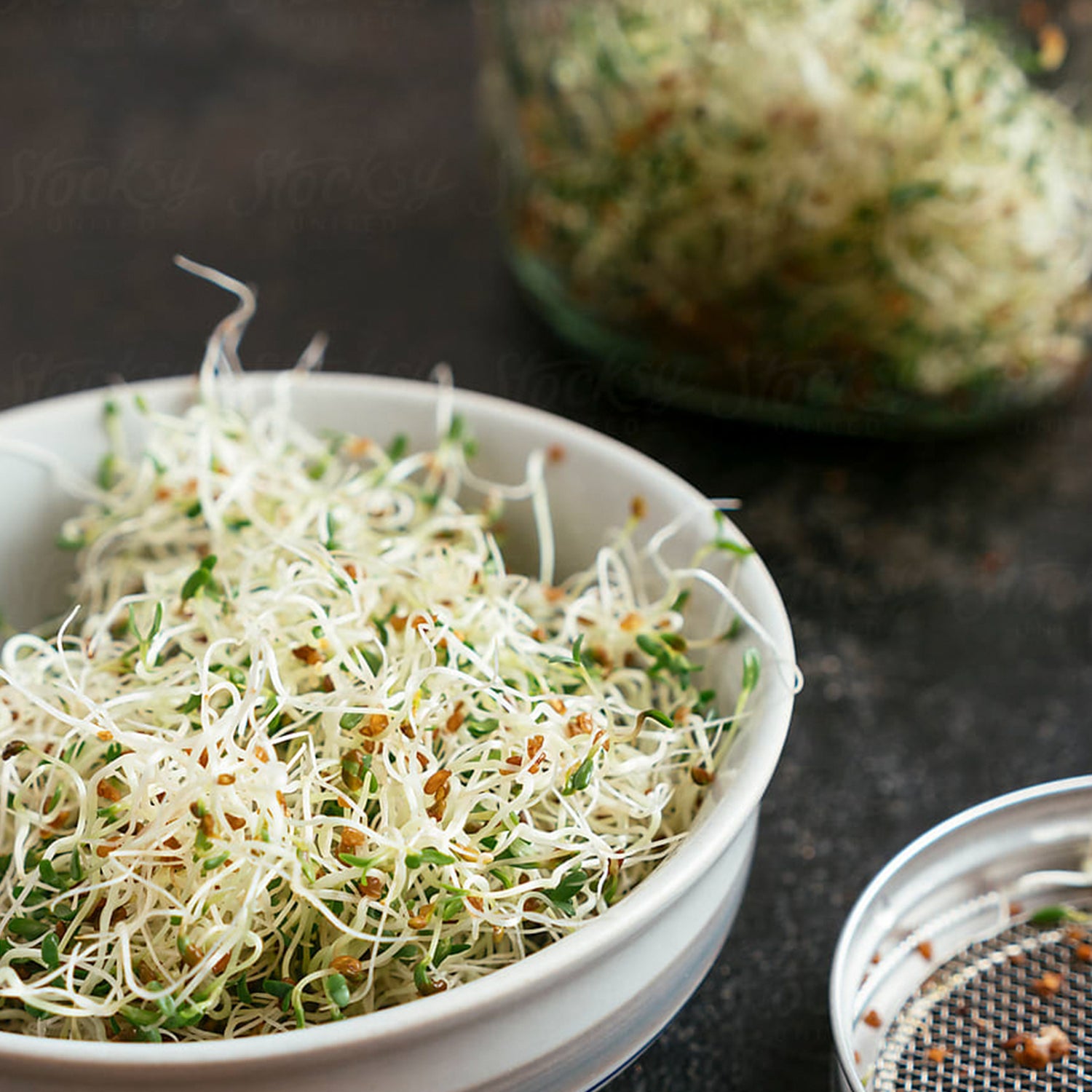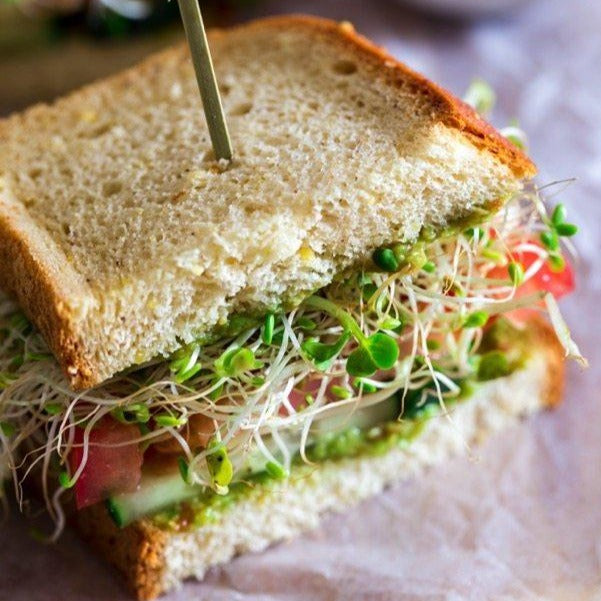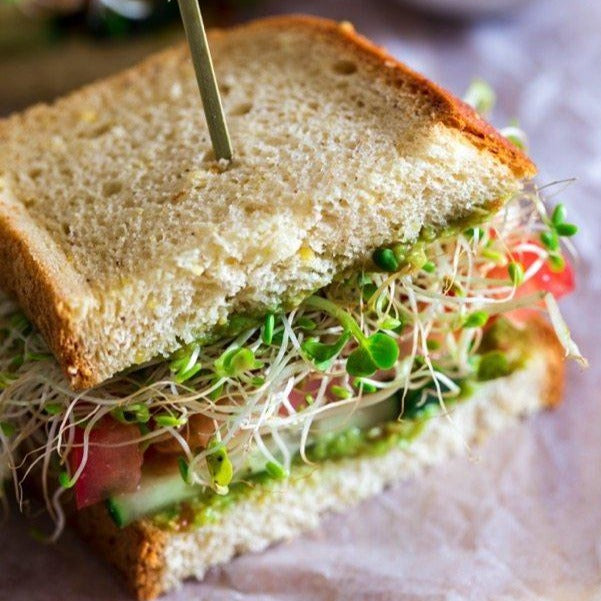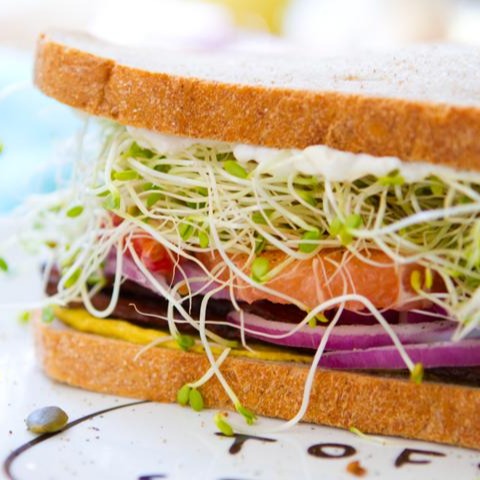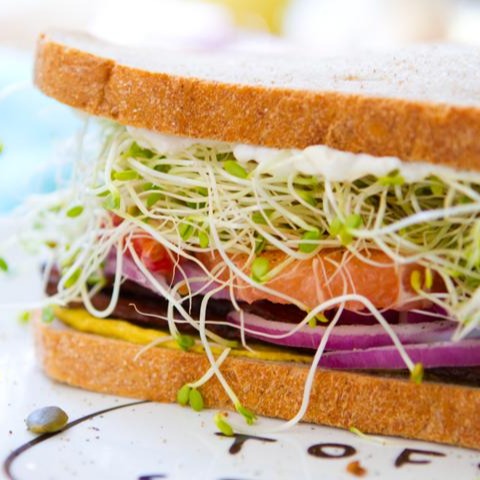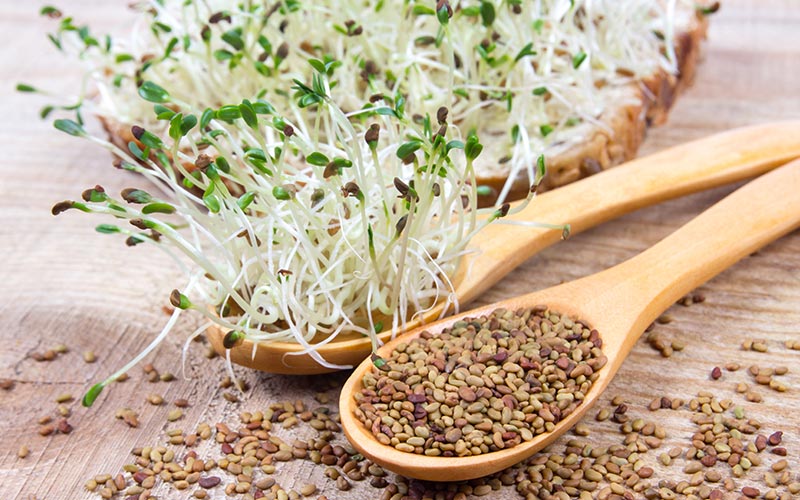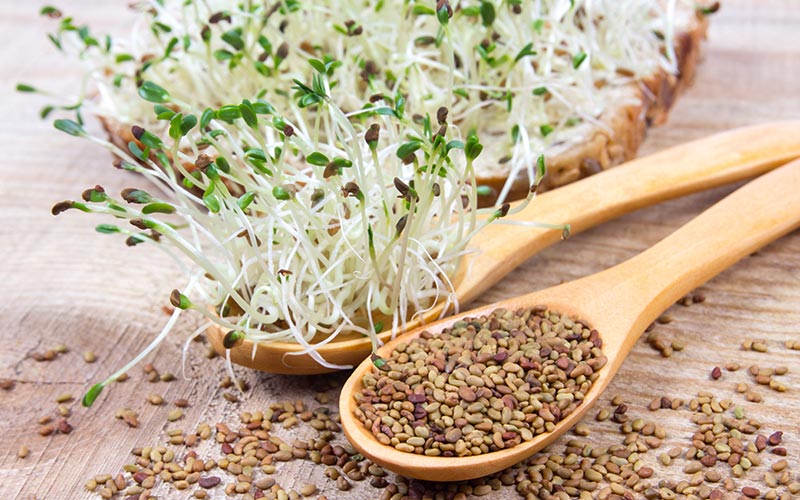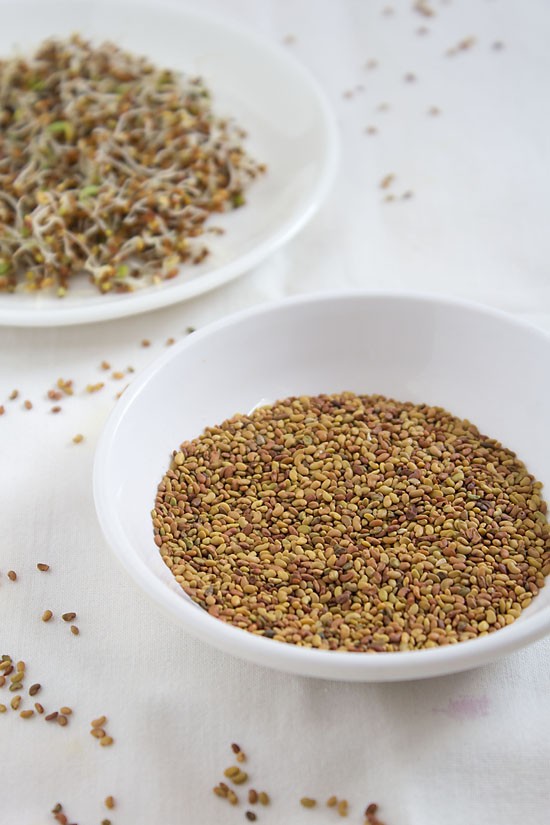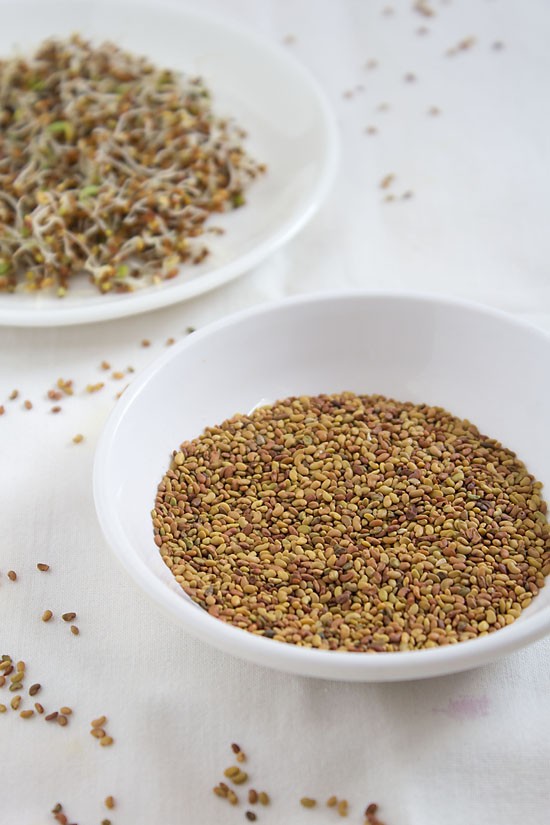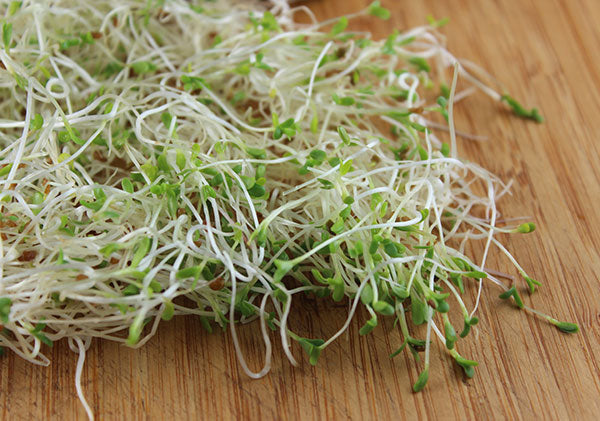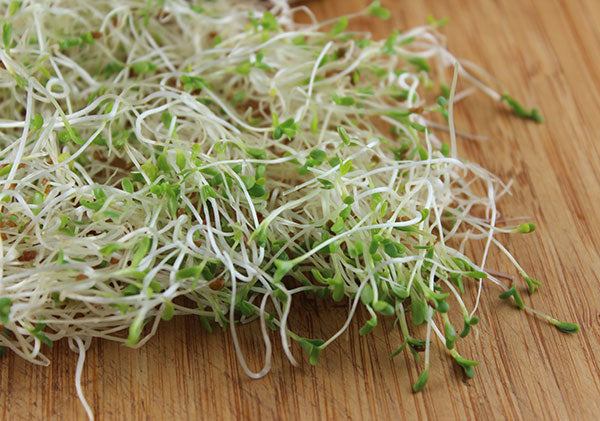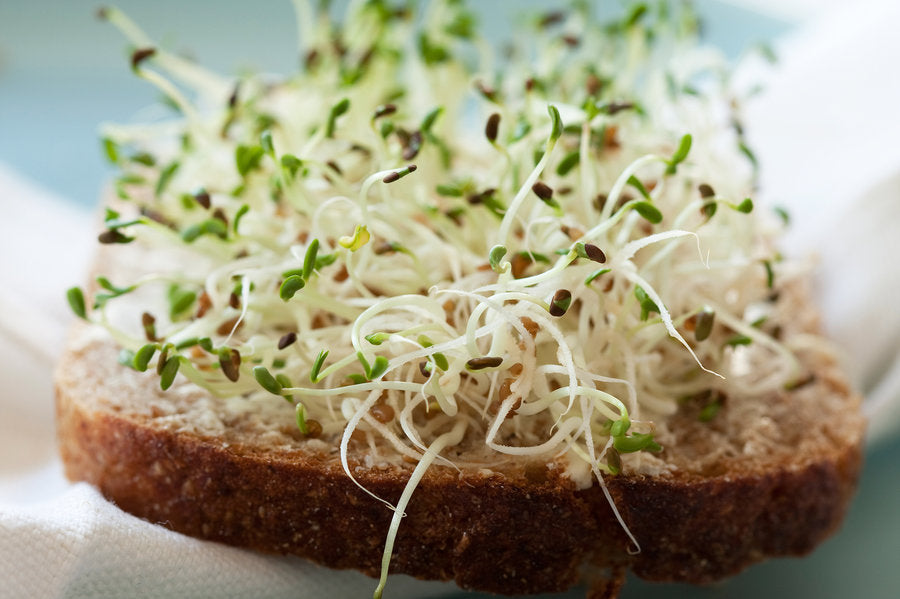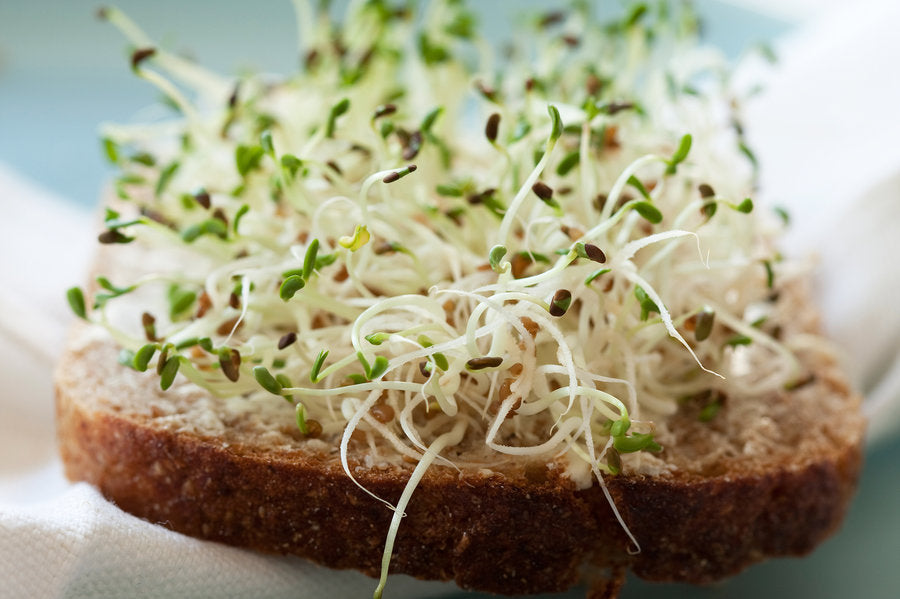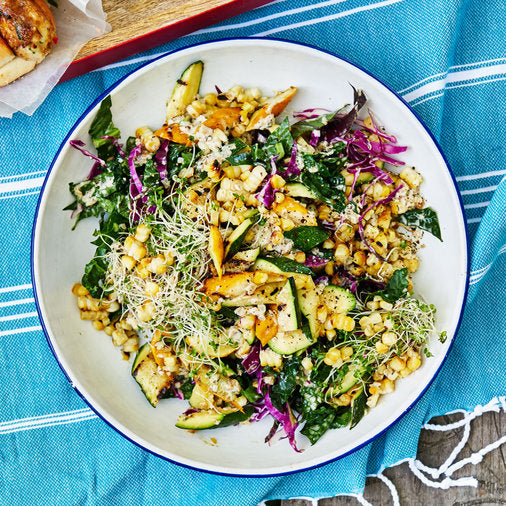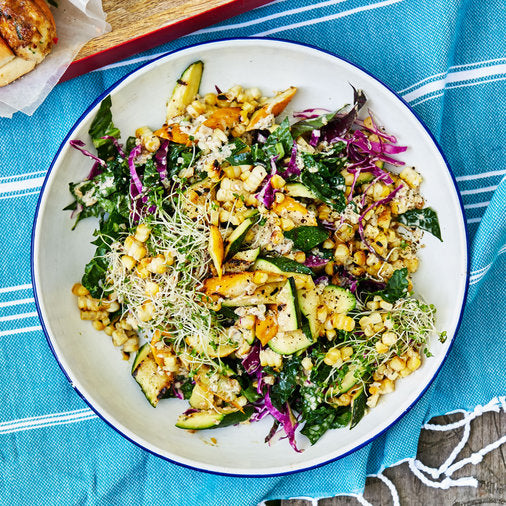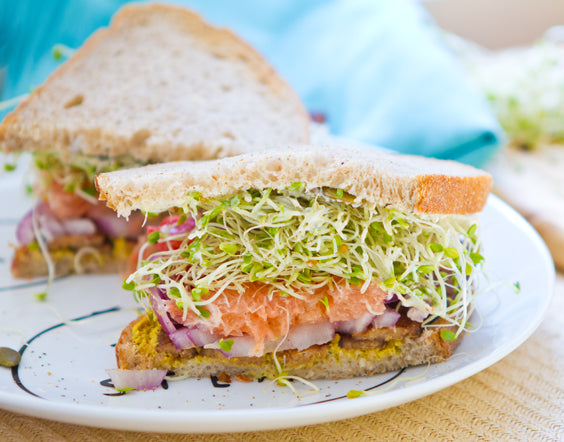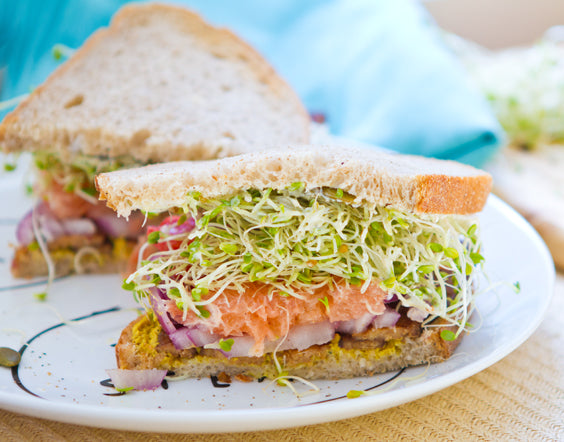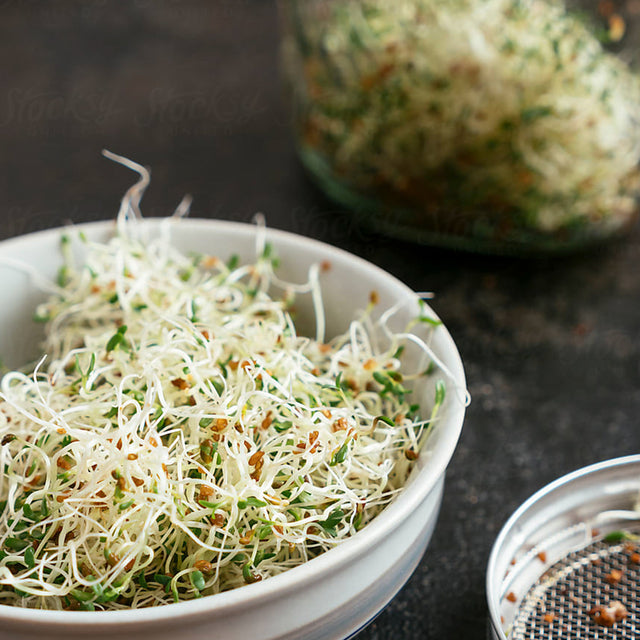Alfalfa Seeds 114g
Alfalfa Seeds 114g is backordered and will ship as soon as it is back in stock.
- Difficulty: Easy
- Recommended Seeding: 1.5 tbsp per quart jar, sprouting tray, or sprout bag
- Initial Soak Time: 4-6 hours
- Rinse Frequency: 2-3 times per day
- Days to Harvest: 5-6 days
- Nutrients: Calcium, Fiber, Protein, Potassium, Phosphorus, Omega-3 and Omega-6 Fatty Acids, Vitamins A, C, K, Folic Acid
- Calories: About 8 calories per 1 cup serving
- Flavor: Flavors similar to wheatgrass, alfalfa is one of the sweetest and mildest varieties of sprouting seeds. To keep sprouts white and less earthy, minimize sun exposure during sprouting to not allow the development of chlorophyll causing sprouts to green like wheatgrass. Exterior seed shell softens and becomes chewable during sprouting.
How to Sprout Organic Alfalfa Sprouting Seeds
Alfalfa is one of the cleanest and most hygienic sprouting seeds, only requiring 2-3 daily rinses while keeping sprouts protected from light. Rinse thoroughly with cold water to keep sprouts free of organic decomposition and metabolic waste from sprouting. Although seeding rate may seem light, alfalfa sprouts will expand in about 6 days, quickly filling the tray or jar to capacity. In the final 12-24 hours of sprouting, allow alfalfa lighting to develop green chlorophyll. Sprouts may grow entirely in the dark for sweeter, white alfalfa sprouts.
- Sprouting Tray: Sprouting trays conveniently stack on the kitchen counter, providing a wide and shallow all-in-one place for seeds to soak, rinse, drain, germinate, and grow. Except for true mucilaginous seeds like chia, flax, and arugula, sprouting trays are the preferred method for nearly every type of seed.
- Sprouting Jar: Sprouting jars are the most popular and appealing method today for compact and portable 2-6 day sprouts. At home, work, or on the road, jars provide a decorative all-in-one place for seeds to soak, rinse, drain, germinate, and grow.



